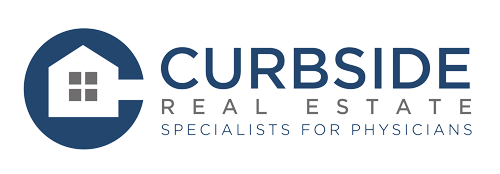Student Loans & Doctor Home Loans Unveiled

Decoding the Impact of Student Loans on Physician Mortgage Approval
Navigating the property market can be a complex process, particularly for physicians who often carry the additional weight of student loans. Understanding how these loans impact the ability to secure a physician home loan is essential for any medical professional considering homeownership. This blog delves into the intricacies of physician mortgage approval and the influence of educational debt.
The Reality of Student Loans for Physicians
t’s no secret that most medical professionals graduate with a substantial amount of student debt. The journey through medical school, although rewarding, comes with a hefty price tag that can linger for years into one’s practice. This debt is a pivotal factor that lenders consider when physicians apply for home loans. It can potentially affect the terms of the loan, the interest rate, and the ability to be approved at all.
How Lenders View Your Student Debt
When it comes to physician relocation or the pursuit of buying a home, lenders will scrutinize your financial history, including your debt-to-income ratio (DTI). This calculation compares your monthly debt payments to your monthly gross income. For physicians with significant student loans, this can result in a high DTI, which traditionally would make mortgage approval challenging.
However, thanks to physician home loans, there’s a silver lining. These loans are specifically designed with doctors in mind, considering the unique financial challenges and potential future earnings in the profession.
Physician Home Loans: A Ray of Hope
Physician home loans are distinct from conventional mortgages in several ways. Lenders who offer these loans typically provide more flexible underwriting processes that take the sizeable future earning potential of physicians into account. Here are some advantages these loans may offer:
– Low or No Down Payment: Unlike conventional loans that typically require a 20% down payment, physician home loans may allow you to finance 100% of the home purchase price.
– No Private Mortgage Insurance (PMI): Most loans require PMI if you put down less than 20%, but this is often waived for physician loans.
– Flexible DTI Calculations: Lenders may allow a higher DTI ratio for physician loans, knowing that student debt is a factor, but also considering the likelihood of increased income over time.
– Student Loan Considerations: Some lenders may only consider your income-based repayment amount when calculating your DTI, rather than the full loan balance.
Strategies to Counteract the Impact of Student Loans
If you’re a physician with student loans looking to buy a home, consider these strategies to improve your loan approval chances:
– Advance Planning: Start by assessing your financial situation early. Understand your student loan repayment options and how they might impact your homebuying timeline.
– Improve Financial Health: Work on lowering your DTI by paying off other debts and being cautious about taking on new debt.
– Boost Your Credit Score: A higher credit score can often result in better loan terms and interest rates.
– Shop Around for Lenders: Not all lenders are created equal, especially when it comes to physician home loans. It’s important to find one that understands your unique situation.
Taking the Next Step
As you contemplate the interplay between your student loans and the desire to own a home, it’s essential to consult with professionals who specialize in physician home loans. Curbside Real Estate is at the forefront of assisting medical professionals with these financial decisions.
Whether you’re ready to take the leap into homeownership or just beginning to consider your options, we invite you to schedule a Curbside Consult. If your schedule doesn’t permit, simply complete our consult form to be matched with a knowledgeable consultant at a more convenient time.
For further reading on managing medical school debt, the AAMC offers extensive resources for financial planning and debt management.
Disclaimer: The information provided in this article is for general informational purposes only. It should not be construed as financial, legal, or medical advice. Always consult with a qualified professional before making any significant decisions.
